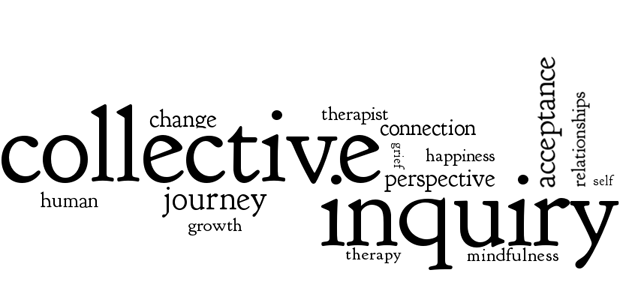

Some people picture therapy as largely consisting of talking and then being asked, “How do you feel about that?” Before becoming a therapist, I used to laugh along with those people and think it was a myth. Surely, there was a lot more to therapy.
Turns out, I would be asking that question, not just once, but many times. It initially took my surprise. As time passed, however, it became a natural part of therapy.
The tricky part is, sometimes this question can immediately have a person shut down. They would rather hear what I have to say, or are used to associating sharing of feelings with rejection or hurt, or would rather not discuss feelings at all.
When this occurs, I have to respect the right of my client to not want to share.
After all, I have faced my own struggle with answering this question. I’ve had people take my answer only to tell me, “You shouldn’t feel like that,” “You’re too sensitive,” or attempt to come up with a solution before giving any form of empathy (It can be as easy as saying, “that sucks”).
These responses are extremely disheartening and the quickest way to invalidate someone, someone who was courageous enough to be vulnerable with you. It taught me to be guarded, to internalize my feelings, and filter what I shared. I became afraid.
It wasn’t until I was more firm in my boundaries (e.g. standing up for my right to have my feelings) and gained insight into my style of processing emotions that my fear lifted. I started to believe less in the negative messages I was receiving and really reflected on the context of the situation. I had to sort through people who were more comfortable around the expression of emotion, and those that avoided or belittled it. I slowly started to build trust with those who did not tell me what to do or how to feel.
I learned to frame the “sensitive” parts of me as strength because it was a way to empathize and connect with people. But I also recognized that at times it posed challenges, because I was more prone to feeling hyper-aware and thus, hurt. Either way, it’s become an aspect that I have come to respect rather than regard as a weakness. On occasion, I revert back to my old fears of being shut down.
Now, I recognize this as an indicator that past experiences can carry a lot of power through the present. This further affirms the importance of being gentle and not prying out information from someone who is not ready.
This is what I want you to know— as cliché as the question may seem, the bottom line is that I truly want to hear your opinions and observations about your life. They are most likely infinitely more true and meaningful than any comment I have. And I know from experience how important it can be to have someone respect your right to feel whatever it is you feel.
As you sort through your emotions with guidance, it may be the first time someone genuinely wants for you what you want, and not what they think you should want. My hope is that as a therapist, I can be part of changing the negative experience and attitude towards emotional expression, as well as the acceptance that it comes in many forms.
Talking is not the only way to share; appreciating and valuing different perspectives and styles is what is most important. (but that’s for another post!)
What are ways that you express your emotions?
Share your thoughts
3 Thoughts About How do you feel about that?
Fat’mah
I’m super glad you wrote this post. I would like to comment, though, on one aspect that is super important to the client, that we, the client, already suspect: we already know the answer.
This is why it can be so important to have the therapist there, and also have them ask “how do you feel about that?”
Number one, we already know the answer. Our brain function–constituting the sensorial processing of reality, subconscious interpretation/pattern recognition, and various levels of acknowledged-conscious interpretations–is far more complex and nuanced than we consciously know. And appropriately more understanding of ourselves, our desires, and our relations with the external world. And so, even though we may not admit it to ourselves or, even more gravely, may not even realize it at all, we already intimate the best course of action or best attitude to adopt to deal with a certain emotion/challenge or best way to adapt to our current environment. in short, truly, we already secretly, subconsciously (at least) know what our therapist will help us realize.
Number two: this is why it can be so important/helpful to have a therapist. often times we also subconsciously hide these answers from ourselves, on behalf of whatever personal desire or perceived cultural norm. sometimes we need to come to understand–whether by ourselves or with the help of others–that certain emotions and desires are completely ok and are even common.
Number three: we need a therapist, often enough, not just to understand that these desires or feelings or hidden self-knowledge is ok, but to discover them in the first place. We often hide our subconscious resolutions so well that we need someone to repeatedly, tirelessly ask “how do you feel about that” so that we will first discover that we have already secretly figured out our answers in the first place. They help us learn how to be honest with ourselves.
Luckily i know a handful of therapists to keep me honest to myself.
j;
Thank you so much for this feedback. It is encouraging not only to see this great insight you have, but the positive connotation for why someone may need therapy. Rather then seeing it as being told what to do, it is more about uncovering the answer that the client already holds within.